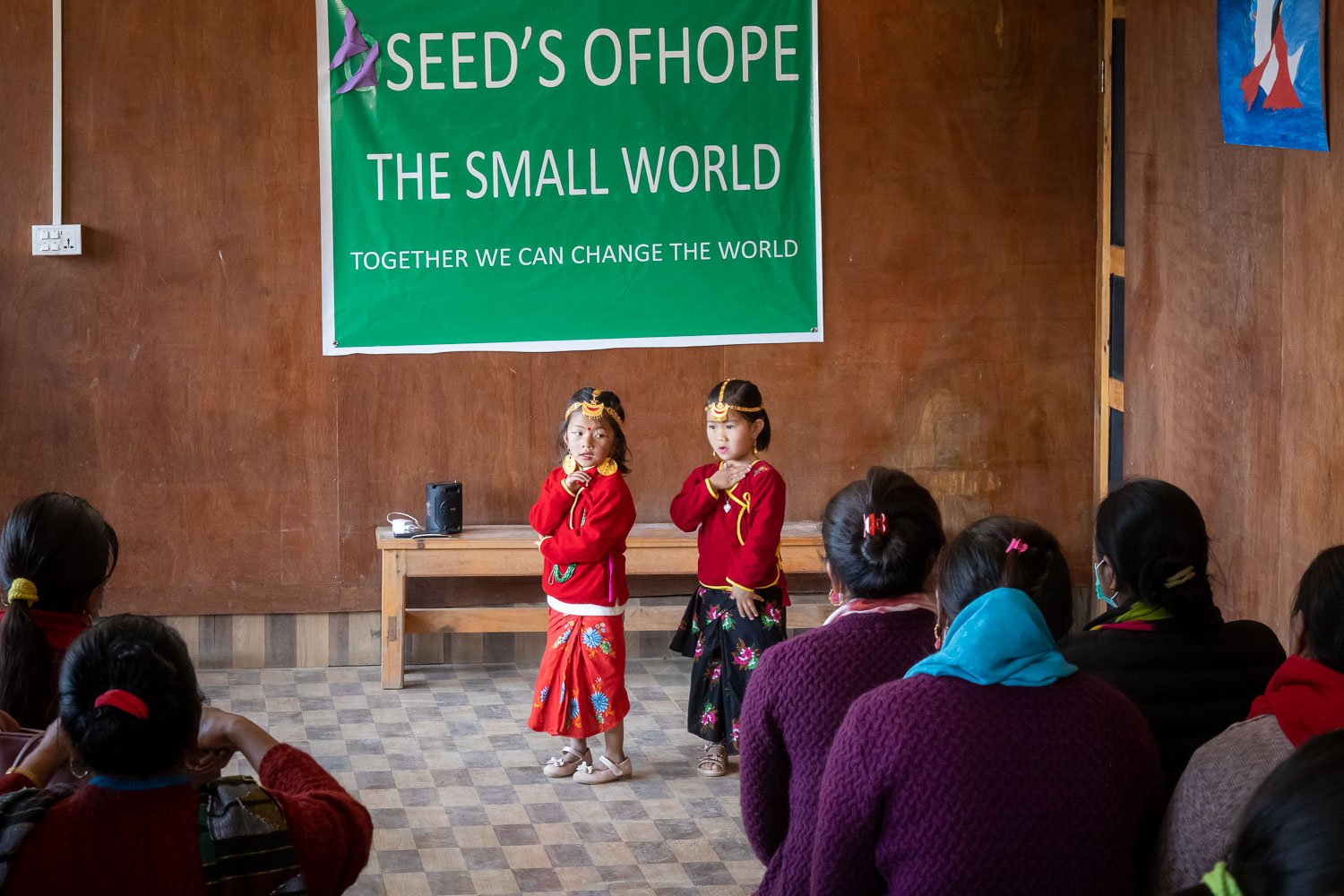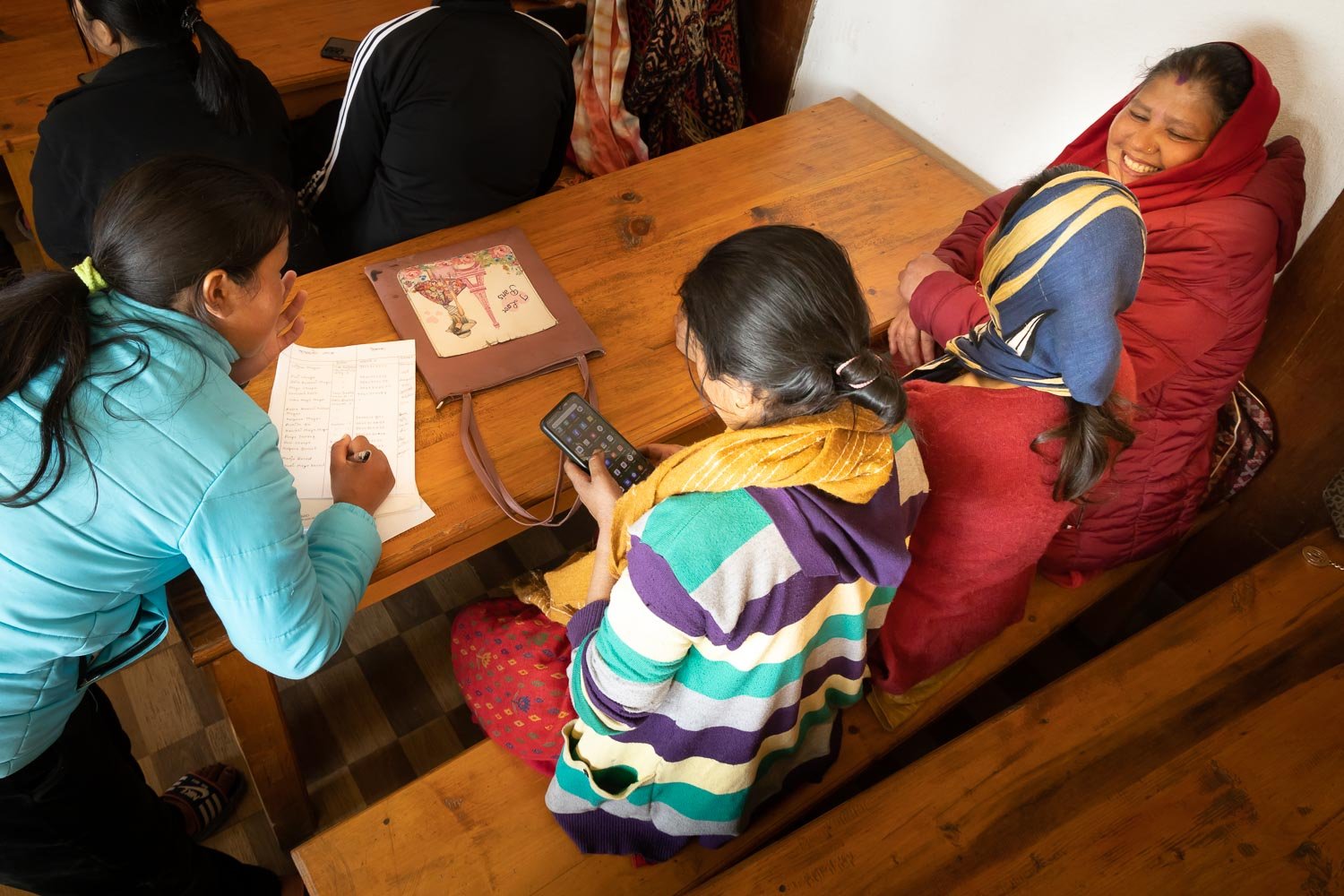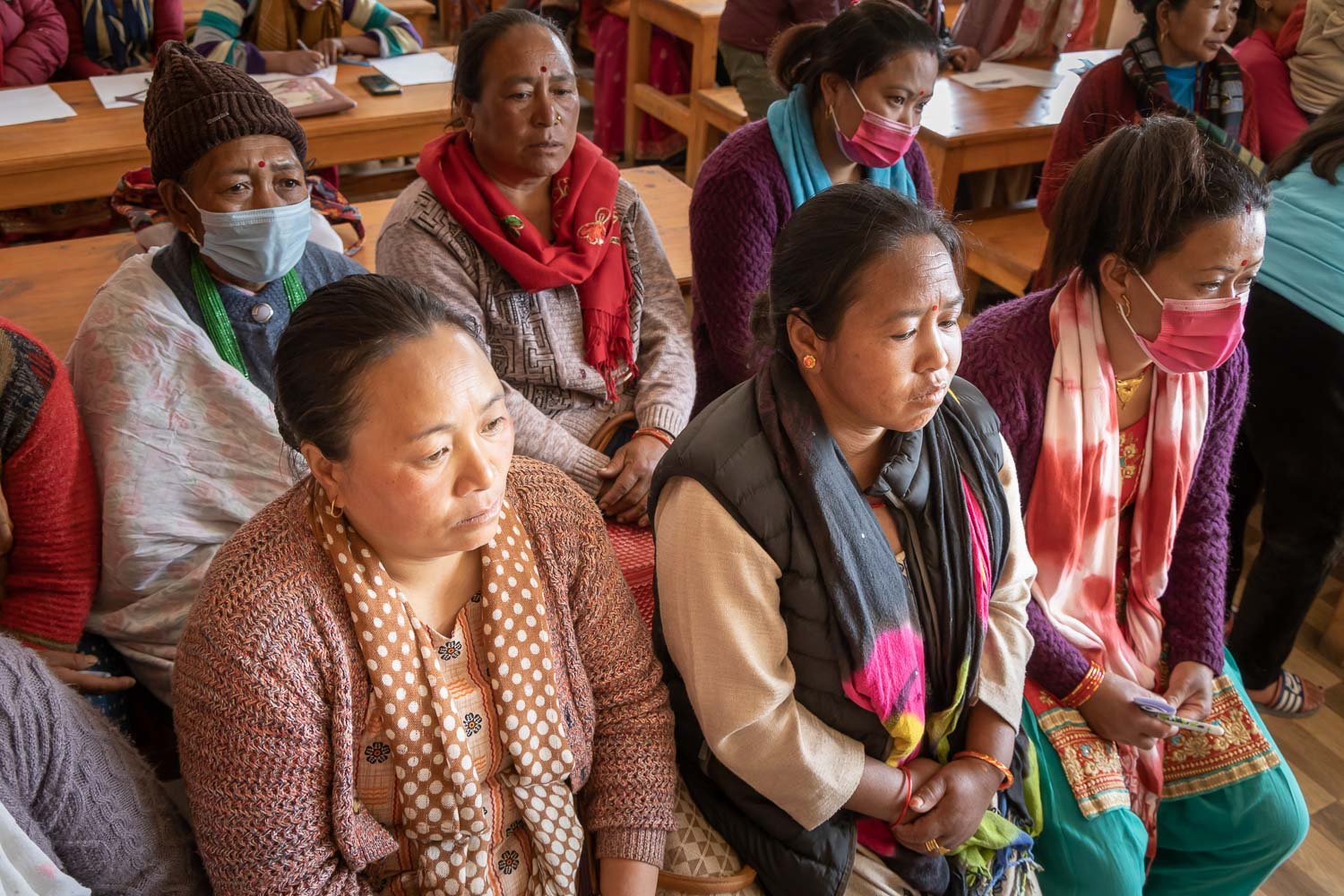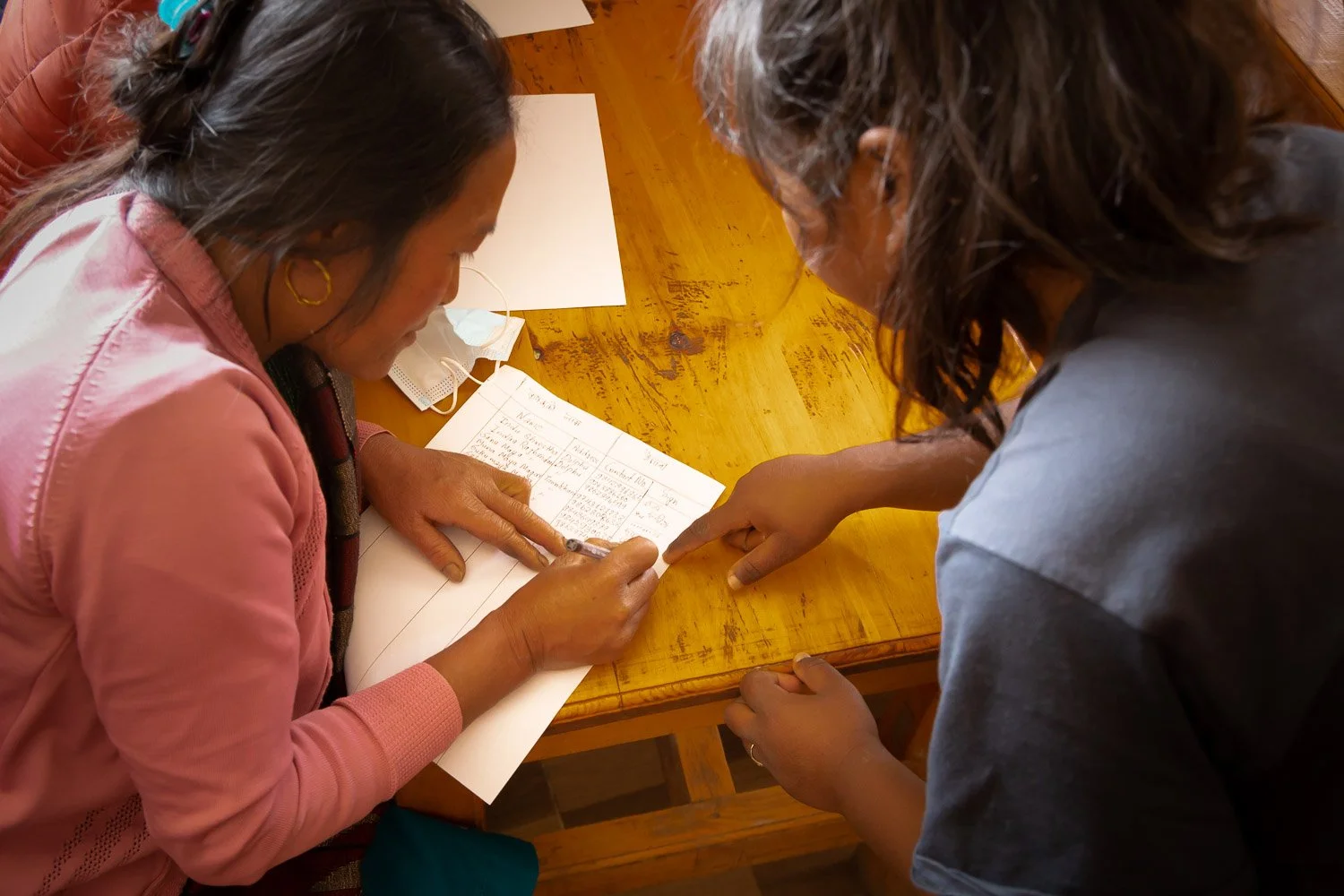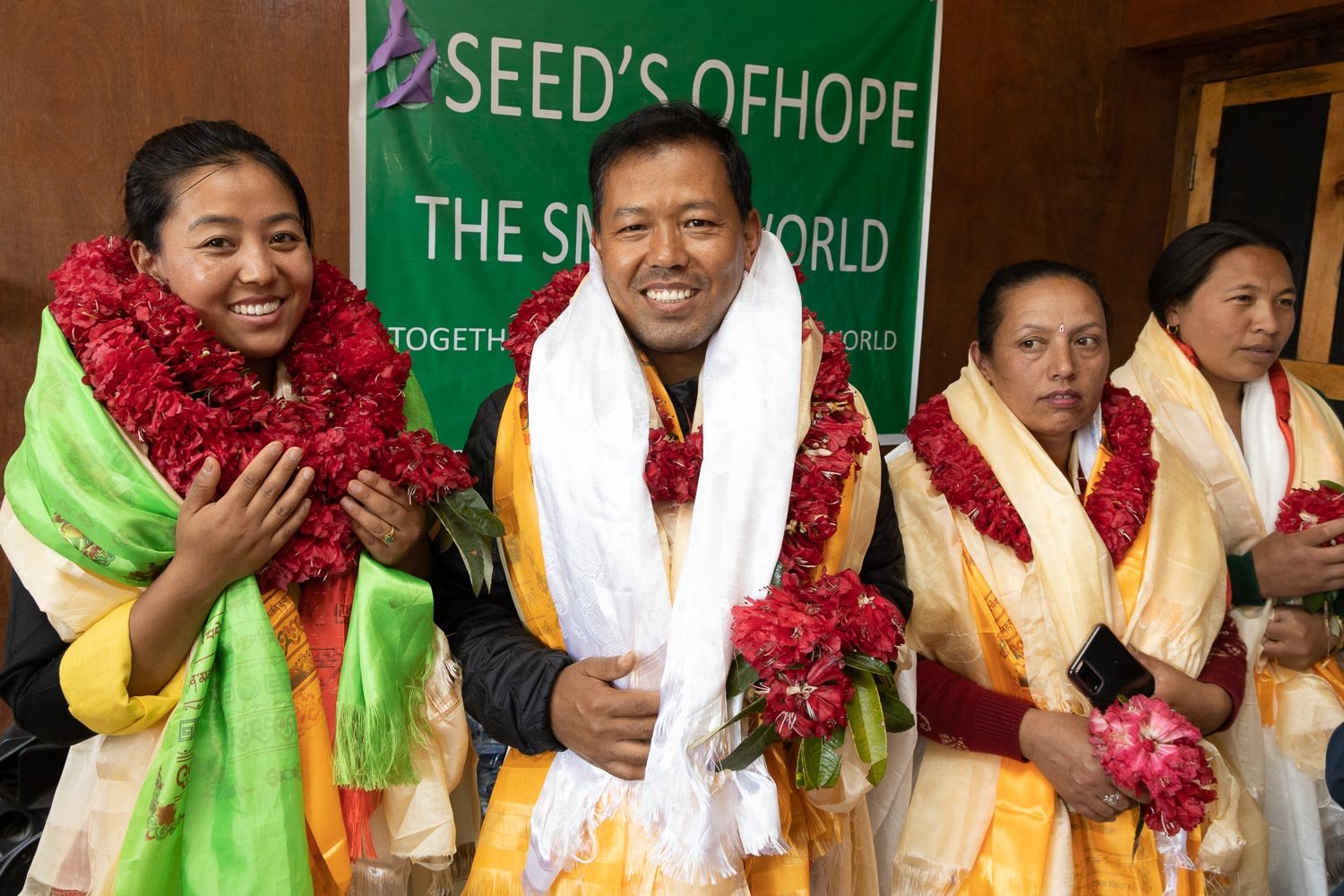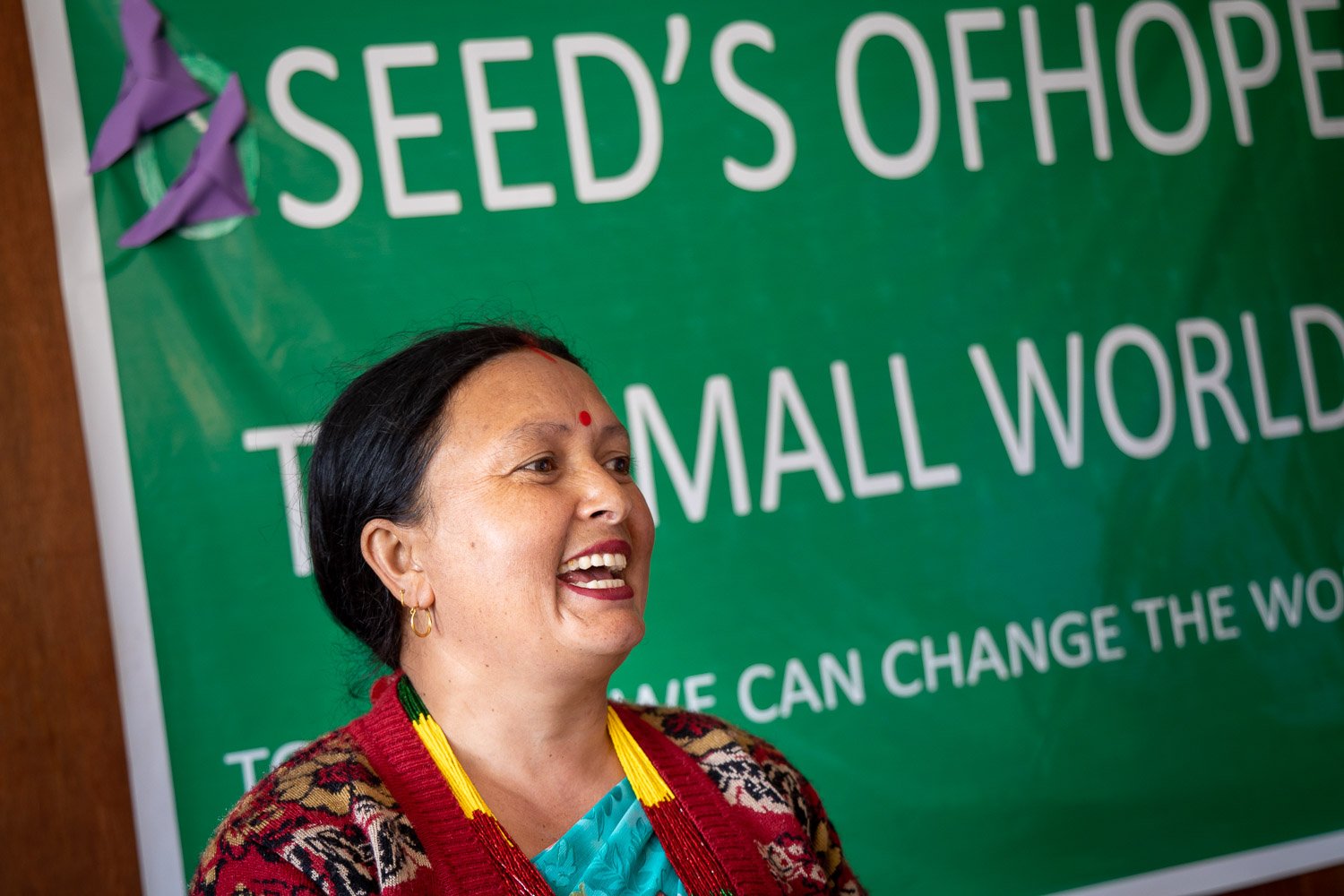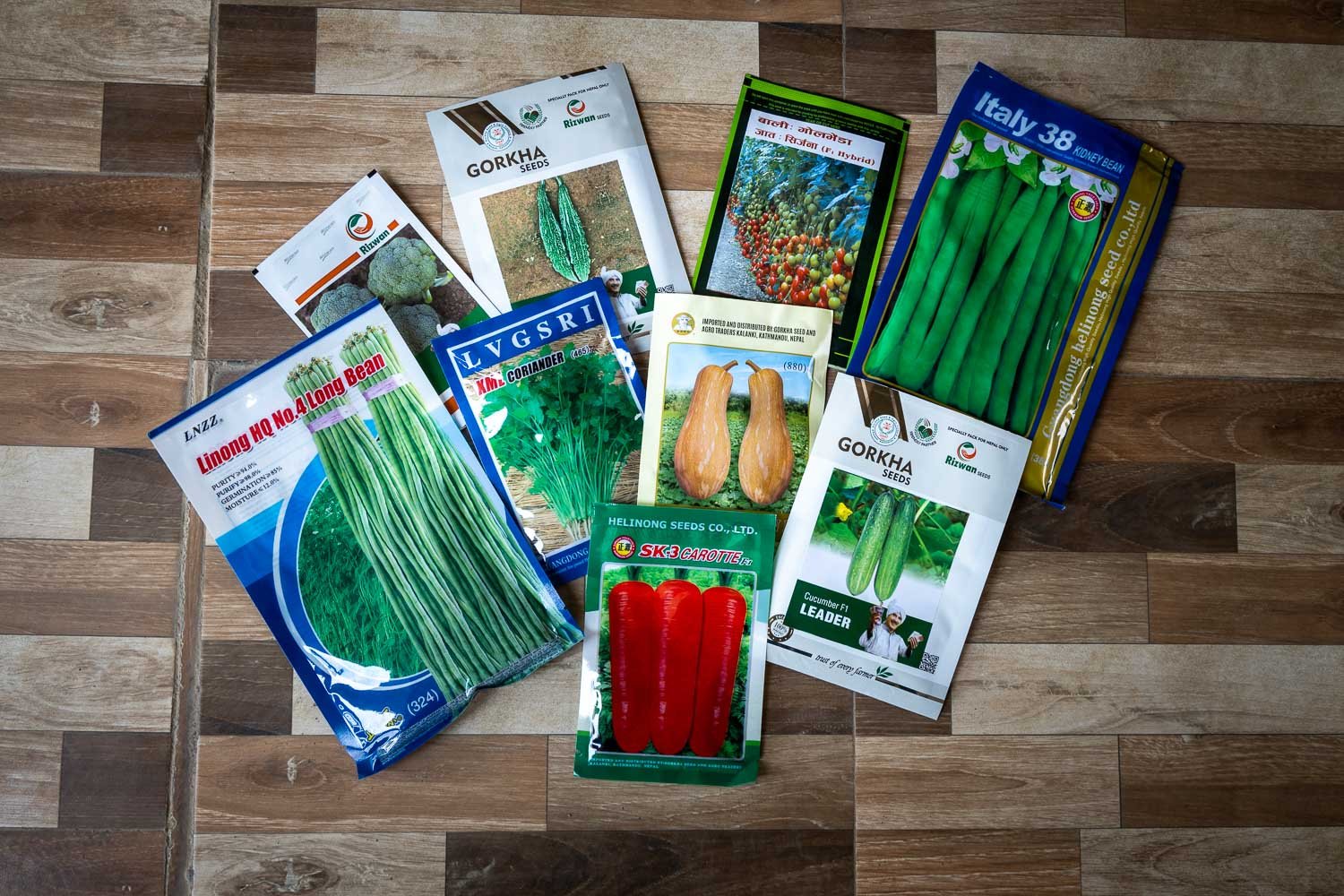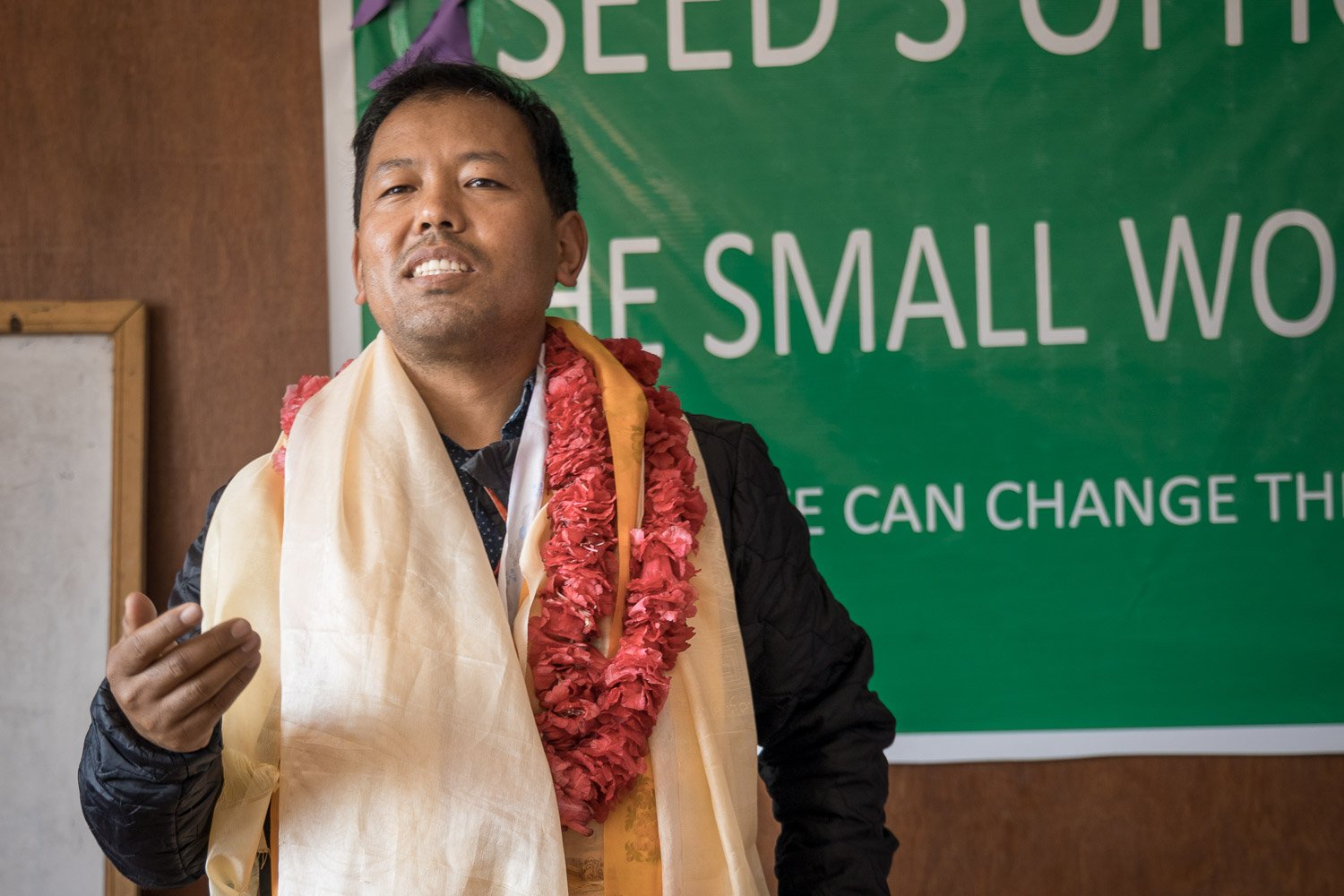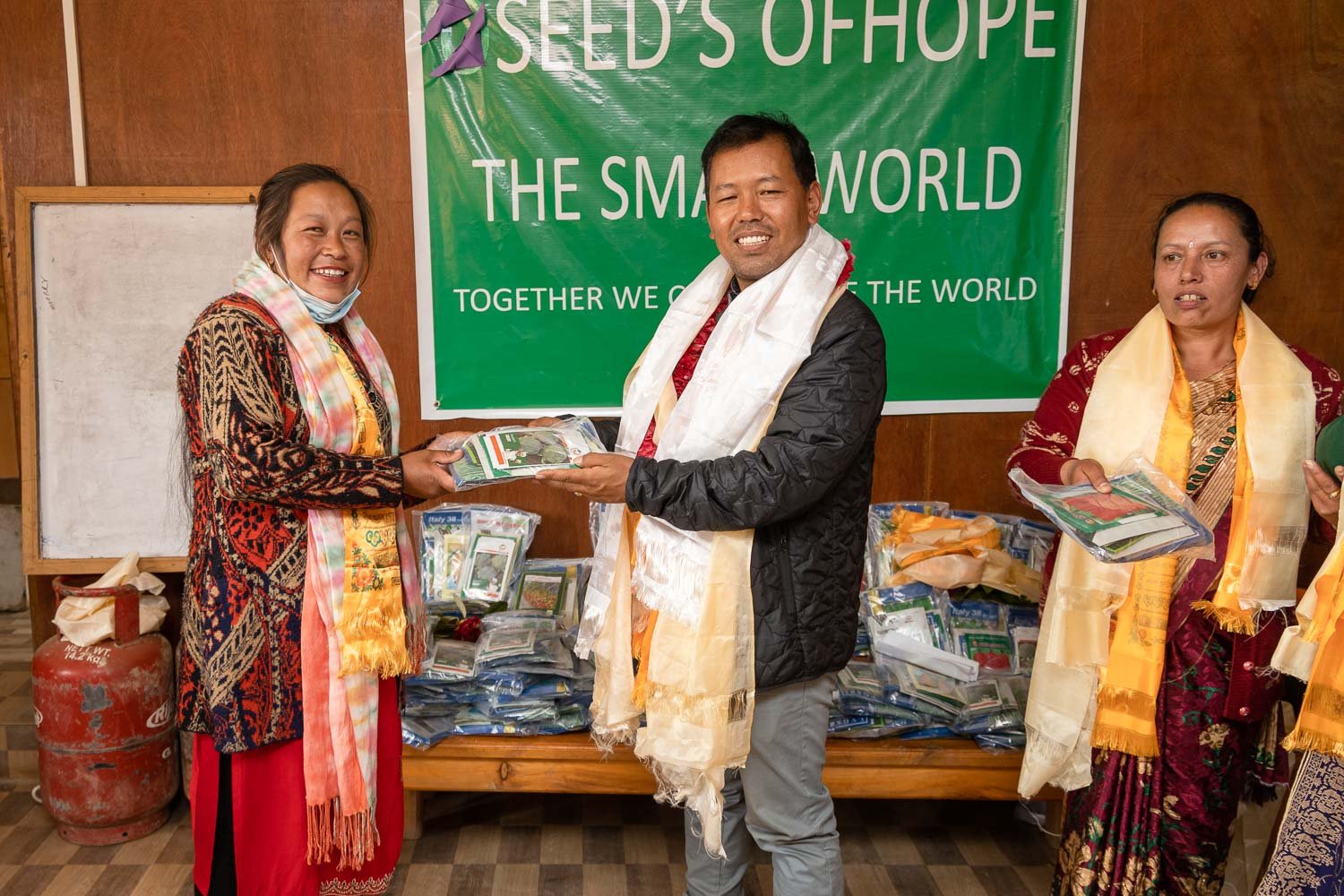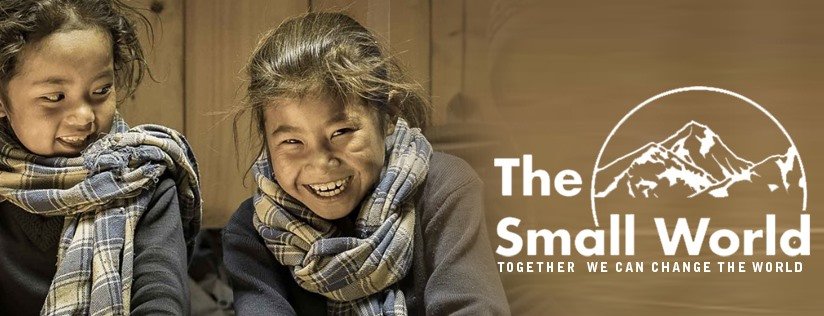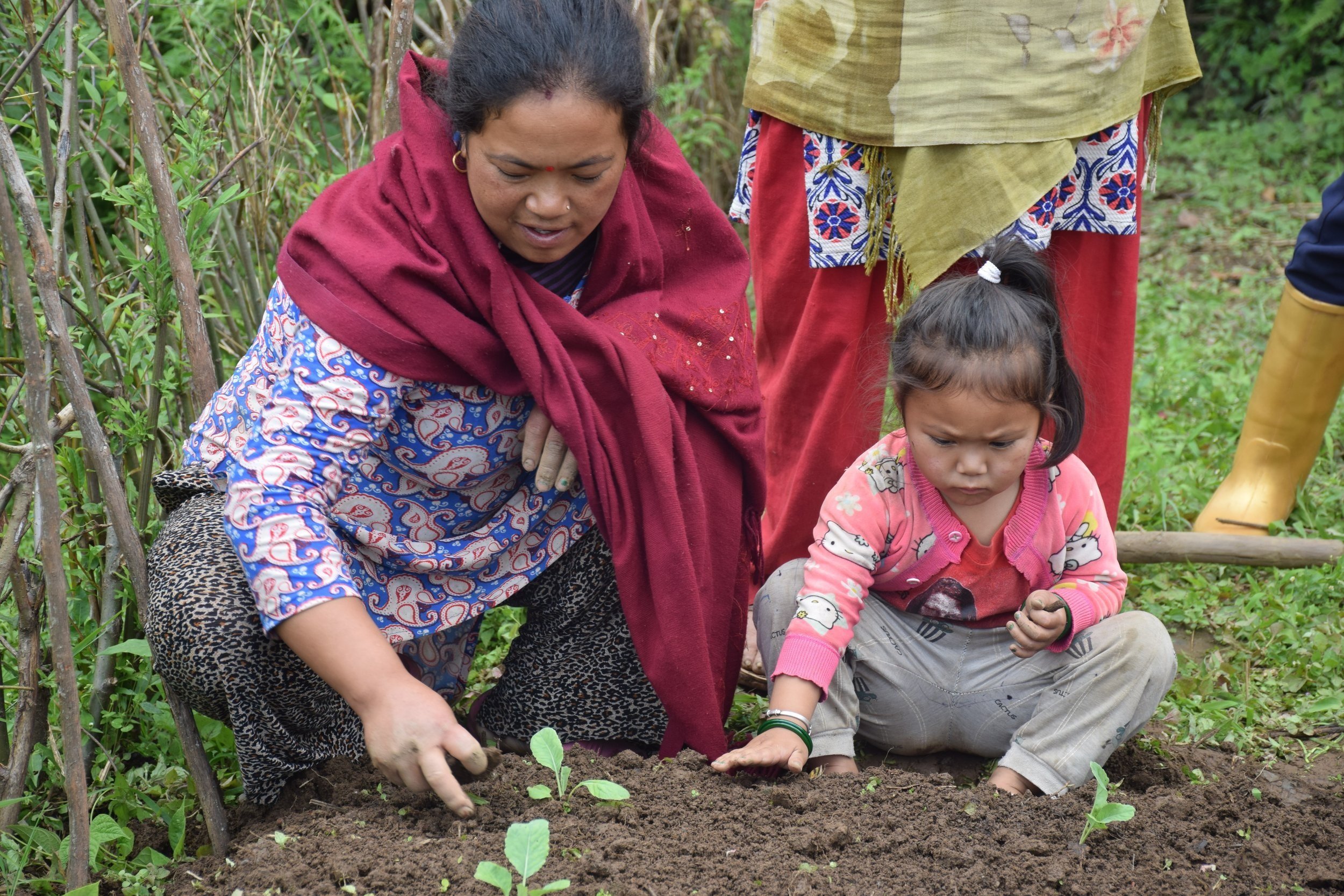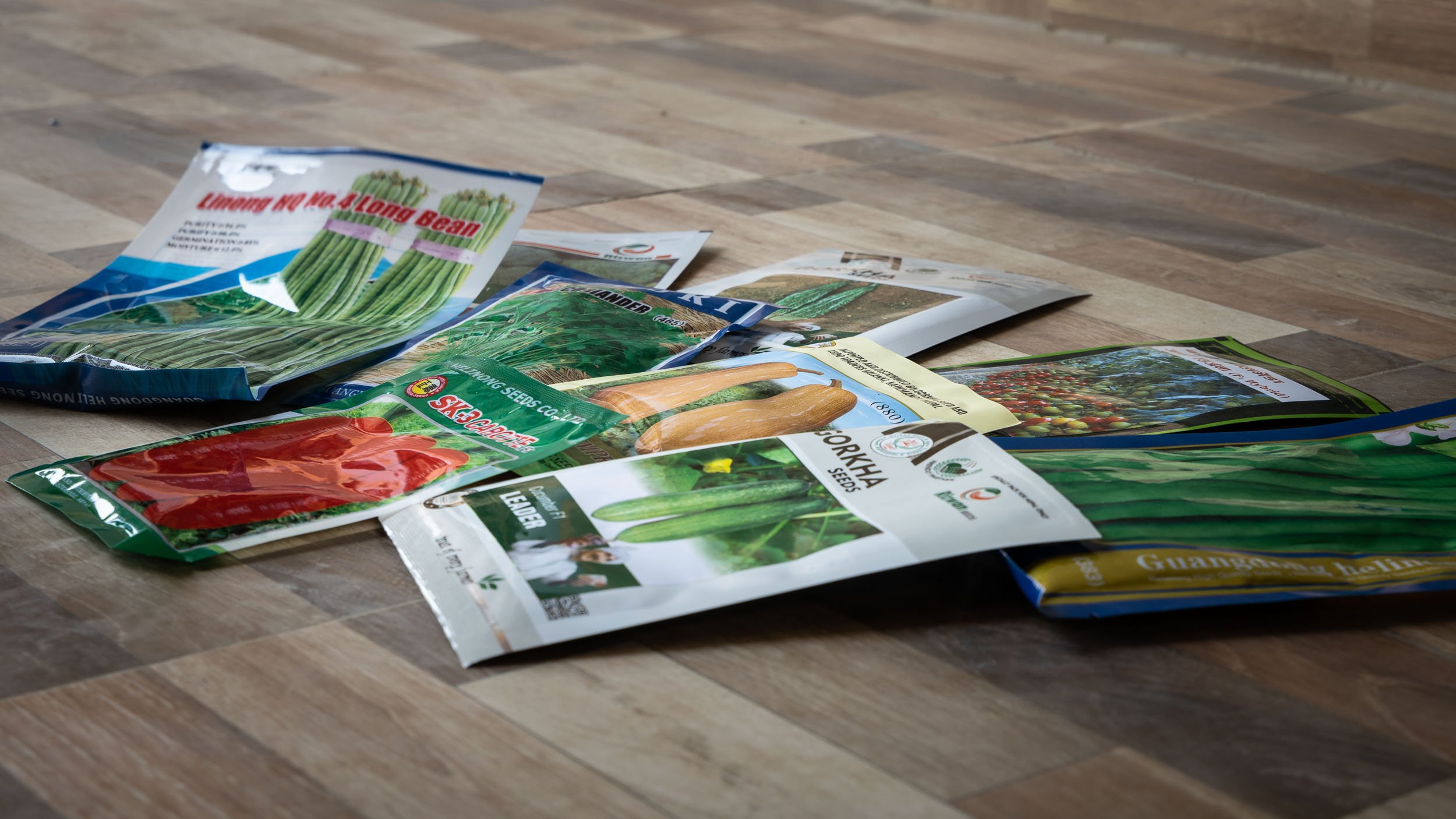
Seeds of Hope
Agriculture Support
Seeds of Hope
The coronavirus pandemic has sparked not only a health crisis but also an economic crisis; together, they pose a serious threat to food security for people from disadvantaged communities, single mothers, and low-income families in the remote and fragile Himalayan villages of Solukhumbhu. In response to these issues, The Small World launched a special program, the Seeds of Hope, for the disadvantaged and Covid-affected villages in the Solukhumbhu district.

Educating New Market Gardeners
How does the Seeds of Hope impact communities?
Builds more resilient and inclusive food systems that limit the impact of future pandemics and/or food shortages
Ensures food and nutrition security
Yields income generation with market management
Provides nutrient-rich organic produce
Forms women’s groups to equally benefit the most vulnerable in every community
Empowers local communities through leadership programs
Photo: Children harvesting organic vegetable from Green House Tunnel round the year

Introducing New Varieties seeds
What actions has TSW taken?
As an emergency response, we delivered 20-plus varieties of seeds and a greenhouse tunnel to hundreds of families. This allowed communities to immediately grow crops and feed their families during the lockdown and the Covid crisis.
We recognize that in the face of increasing pressures from both the pandemic and the climate crisis, the latter bringing extreme weather conditions (unusually heavy rains, an excessively dry climate, and an overall change in season),
our greenhouse tunnels have become very important. Food systems across the globe must become more resilient, more inclusive, and more oriented towards better health and nutrition for all — particularly for women, girls, and other equity-seeking groups.
Through the Seeds of Hope program, marginalized farmers and livestock keepers are empowered, and the supply and consumption of healthy diets are increased through a series of new tools, models, and approaches. All ensure equitable access to nutritious food, reduction of food loss, and seed production at the local level.

These initiatives address urgent local needs, focus on the most vulnerable people and communities, and stay true to our commitment to invest in grassroots-level food systems.
The challenge is daunting and requires immediate actions while giving voice to underrepresented groups. We are committed to taking on this challenge and investing in the empowerment of local grassroots level farmers and livestock keepers to build more climate-resilient food systems.

Empowering Communities at the Grassroots Level
What has proven to be very beneficial are the women’s groups that we established; there are 25 women in each group and two key leaders from each group. These leaders are the liaison between the Small World team and the women; they contact us if anyone needs additional support from our experts.
The women have very much enjoyed this arrangement because they can easily share their stories and problems and find solutions in their groups.
With this arrangement, the women are empowered to find workable solutions, build relationships, establish trust and independence, and increase self-esteem, self-reliance, and a stronger community, which are all vital qualities, especially during the recent pandemic and any more to come.

Just as we have done in the past, TSW will continue working directly with local experts on local issues, sharing knowledge for greater uptake, and mobilizing resources for lasting impact.
These investments in climate-resilient and inclusive food systems also align with the critical action areas identified by the 2021 UN Food Systems Summit:
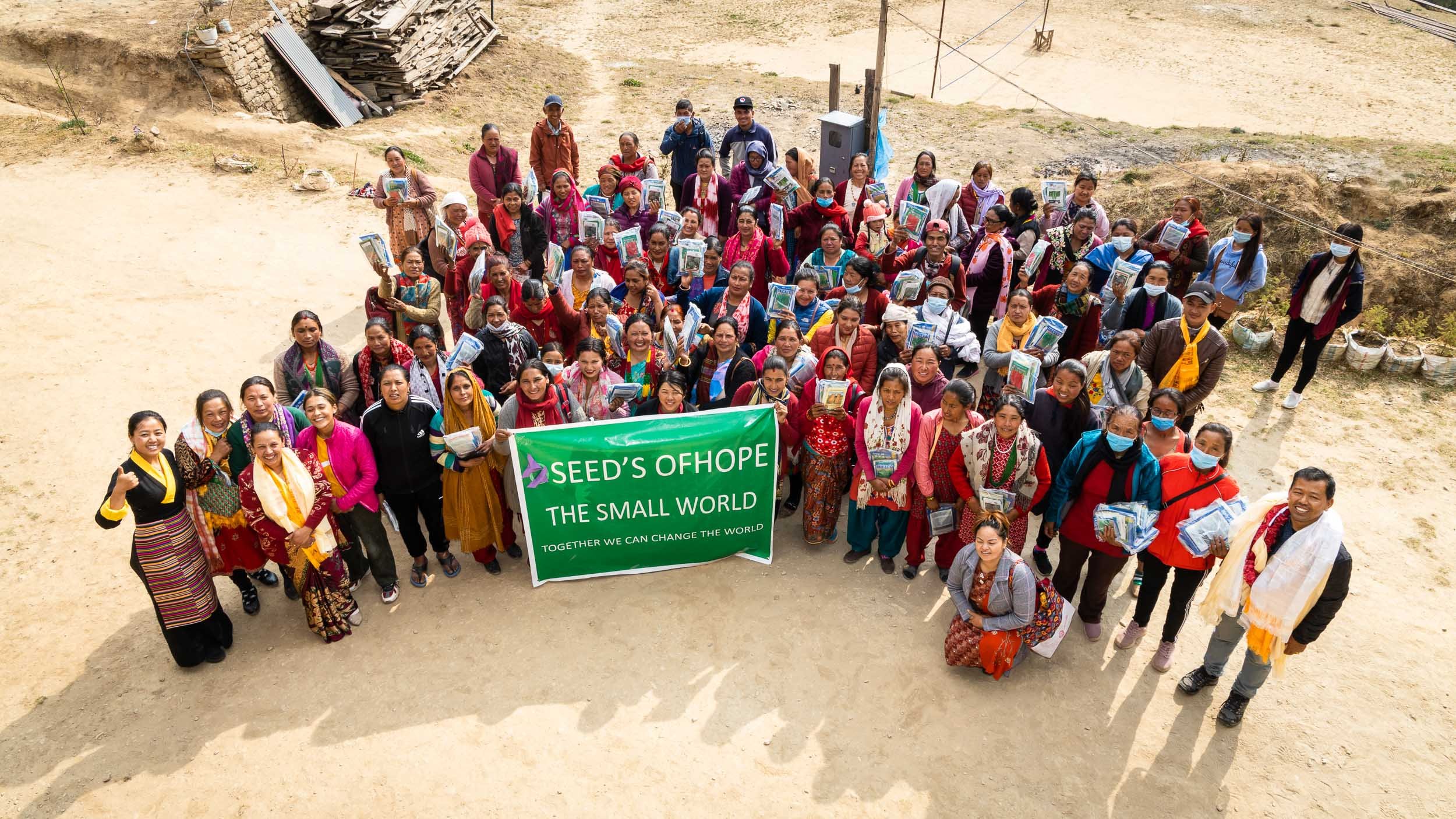
Addressing Urgent Local Needs
How Would You Like to Participate in our 2022 Project?
We invite you, your family, and your community to consider supporting this very important and long-lasting project within the 2022-2023 season.
Our budget to support a family is USD$200, which will provide a family with more than 10 different kitchen garden seeds; training by an agriculture expert; a greenhouse tunnel; group formations; leadership programs, etc. Our goal is to benefit over 500 families. On average, each family has six members, so our plan would ultimately benefit over 3,000 individuals.
We hope you will consider helping us with this project that will provide urgently needed assistance as well as a long-term investment in sustainability for needy families of the remote Solukhumbu district.
